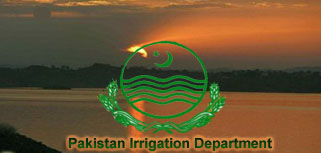Sindh water vision emphasised
August 29-2013
KARACHI – Water experts, politicians and civil society activists at a seminar on Wednesday emphasised on government to develop a “Sindh Water Vision/Policy to manage, distribute and conserve water resources to fulfill the increasing needs of the agriculture as well as drinking with increase of population.
Titled “Managing Water resources of Sindh: Irrigation and Flood-Issues and Solutions”, the event was organised by Sindh Economic Forum (SEF). Water expert, former minister and bureaucrat A.N.G Abbasi presided the seminar, while former Irrigation Department Secretary Idris Rajput, economist Dr Qaiser Bangali, water experts and former representative of Sindh in IRSA Bashir Ahmed Dahar, grower leaders Mahmood Nawaz Shah and Syed Nadeem Qamar and others addressed the event.
The participants approved the declaration in which SEF stated that the Government of Sindh has not made any progress in developing its own water policy, nor its own water vision. The draft National water policy and WAPDA water vision do not provide any policy rationale to Sindh, demanding the government to immediate constitute a task force to formulate Sindh water policy and Sindh water vision.
Sindh Economic Forum in its declaration demanded that steps should be taken to eradicate corruption, nepotism and political interference from irrigation department to ensure equitable water distribution among farmers across head, middle and tail reaches.
The declaration of the conference emphasised on ensuring a transparent mechanism for use of budget for irrigation and drainage mainly Maintenance and Research, continuing with a separate cadre of irrigation managers for barrages.
Natural water ways may immediately be restored for efficient drainage of storm and flood water, while Manchar Lake and other fresh water bodies to be restored immediately.
Seminar also demanded small dams at potential sites in Thar, Kohistan and other places including Gaj Dam.
Water expert ANG Abbasi while addressing as chief guest said that Sindh was major loser in Indus Water Treaty, in which three rivers were sold to India.
He added that even 1991 water accord also does not safeguard the Sindh’s right on its water. He went to say that if Balochistan and KPK provinces are not ready to share the shortage of water, then they should not be taken as stakeholder in water resources.
Former irrigation secretary Idrees Rajput said that the impacts in terms of heavy rains and floods being faced by Sindh are effects of Climate Change.
He added that Sindh has not learnt the lessons from the destruction of the last floodwaters in last three years as no mitigation/contingency and drainage plan formed by the provincial government.
Former federal secretary Syed Mohibullah Shah said that no one is taking responsibility of water management and clearing the riverbed between Sukkur & Guddu barrage.
He noted that we need to develop the technical capabilities to handle the river with mechanism and improved technology.
Shah emphasised to construct small reservoirs & power generation planning organisation on pattern of WAPDA.
He believed that there is no water resource management institution in Sindh as irrigation department was a regulatory body only, suggesting formulating a Sindh water vision/policy. Shah said that in 1975 a huge quantity of 1200,000 cusecs passed through Guddu and Sukkur barrages without any damage or flooding, while against it 1160000 causes water claimed large scale disaster in 2010.
He added that just an investment of about 20 crore rupees in water pumps & boats for disaster mitigation can help the easy evacuation to avoid the loss in the province in future.
Economist Dr Qaiser Bengali said that planned construction of villages in the rural areas with drainage facilities was essential.
He added that chopping the forests also caused large scale floods in the province, adding that the Sindh government spent Rs20 billion in 2010 only in feeding the displaced during the floods.
Former member of Sindh in IRSA Bashir Daher said that Indus Water Treaty caused loss for Sindh province. He suggested the need to sign a treaty with Afghanistan immediately to safeguard the right of water on Kabul River as India is constructing irrigation and dams’ network on Kabul River.
Grower leader Syed Mahmood Nawaz Shah said that growers be consulted in managing and distributing the water.
Dr Nadeem Qamar, chief of Sindh Chamber of Agriculture said that half of the Sukkur barrage areas are irrigated and other half faced a drought like situation in the province.Abrar Kazi, Fayz Naich and others also spoke on this occasion.
News Source
Courtesy The Nation

